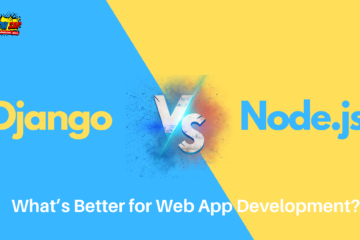
Oracle Database, also known as just Oracle, is a multi-model database management system (DBMS) used for data warehousing, online transaction processing, and mixed database workload. It was initially released in 1979 by Oracle Corporation.
Among Oracle’s many functions is the rational model function, which helps users visualize data in various formats. Oracle database also controls access to advanced technologies for data entry in the system. It ensures data protection and recovery within its environment while offering high scalability and performance that boosts your business productivity.
The Oracle Database Product Family comprises five editions, namely, Standard Edition One, Standard Edition, Enterprise Edition, Express Edition, and Personal Edition. Types of Oracle database consist of Blockchain Platform Enterprise Edition, NoSQL, MySQL, Berkeley DB, Java DB, Rdb, Essbase.
Now that we know the basics of Oracle database, let’s explore its pros and cons.
Advantages of Oracle Database
1. Functionality:
Many corporations rely on Oracle database due to its practicality. It offers them integrated business solutions, high-level technology, along with extensive capabilities like transaction processing, deployment choice, built-in integrations, data warehousing, autonomous operations, and converged architecture, making it ideal for firms that need to store and access huge amounts of data.
2. Flashback Technology:
Oracle incorporates a Flashback Technology database, which ensures quick recovery of data that was incorrectly lost or deleted. Moreover, Oracle’s database increases information recovery time and decreases human error, resulting in simplified management.
3. High Performance:
You can use alternative strategies offered by Oracle to improve your database’s performance. It allows you to use various servers to work on your database with the Real Application Cluster Feature, drastically increasing your processing power. With Oracle, you also get multiple options to fine-tune your database’s operations according to your server capabilities.
4. Versatility:
Oracle SQL provides you great flexibility in terms of running your database on any OS. For instance, the Microsoft SQL server can only function on a Windows-based machine whereas, Oracle SQL can run on a Unix server as well. Thus, you can reap the benefits of Unix’s reliability and security while retaining the standardization that SQL offers.
Furthermore, Oracle databases are backward-compatible so you can easily upgrade without worrying about losing essential data. Not only that, Oracle facilitates its users with a wide range of database engines and deployment options. Oracle Database, NoSQL databases, and MySQL can be licensed on cloud services in Oracle Cloud Infrastructure, Cloud@Customer, and on-premises environments.
5. Backup & Recovery Options:
You can effortlessly leverage point-in-time recovery through Oracle’s Recovery Manager (RMAN), a utility that can restore, recover, and backup database files. RMAN is not only robust but also simplifies administration. This is a feature of the Oracle Database and doesn’t need separate installation.
6. Grouping Transactions:
You can group various transactions into the same batch for processing with Oracle Database. This is not possible in other relational database management systems such as Microsoft SQL Server, which is limited to executing transactions in chronological order. Thus, Oracle offers greater scalability as opposed to its other SQL database counterparts.
7. Quick Updates:
Along with grouping transactions, Oracle informs you of major version releases on their Help panel. Further, it also offers backward compatibility, so the developer does not need to rewrite an application if the DBMS is upgraded.
Disadvantages of Oracle Database:
1. Cost:
One of the main disadvantages of Oracle Database is its cost. Oracle’s products are ten times more expensive than Microsoft’s offering for a mid-range solution. For instance, Oracle Database Enterprise Edition has a retail price of $47,500. Moreover, it has various product categories with a different price range. Their license pricing changes over time, depending on Oracle’s policies.
2. Complexity:
Oracle Database can be exceptionally complicated if you’re a beginner and lack the technical skills needed to install and maintain it. Therefore, if you’re in the market for an easy-to-use and simple option, consider alternatives. Otherwise, you’ll be better off going with our team of software development experts and DBAs who will not only help you build your web or mobile app but set up and maintain your database as well.
To learn more about our full range of software development services, book a FREE Consultation today.
3. Inadequate Technical Support:
While Oracle’s Support Team is far from the worst, it’s certainly not the best either. Users often complain about their slow response times, and certain issues can even take weeks to resolve, especially if they aren’t a high priority.
Final Thoughts:
Oracle is one of the most popular and sought-after choices for database management. However, like any tool or platform, it too has its unique set of pros and cons. Its benefits definitely outweigh its drawbacks and keeping into consideration certain caveats we discussed in this article, it could be a great choice for your firm.



0 Comments